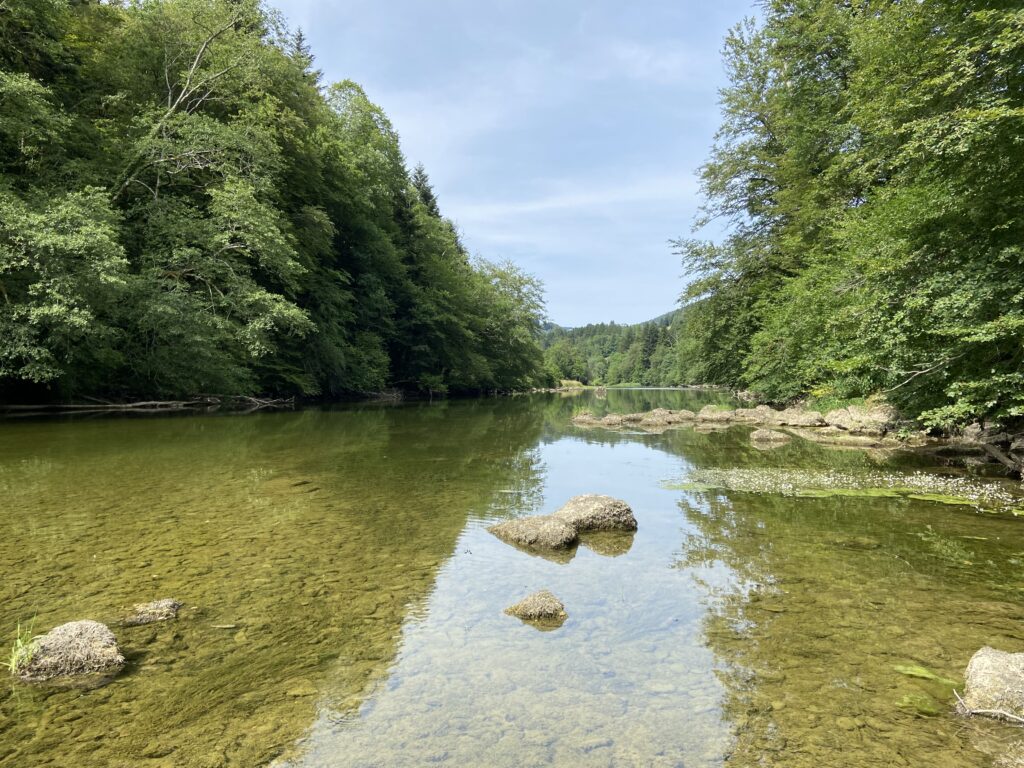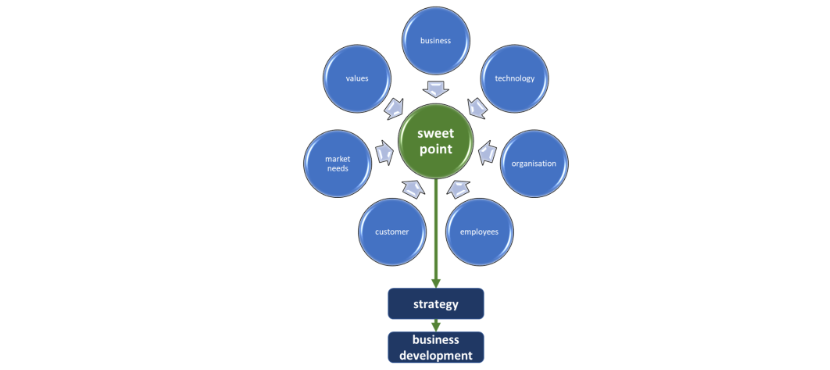Recently I had the opportunity to pursue one of my great passions again, which has fascinated me for almost 40 years: fly fishing. The instinctive experience of the river in all its splendour and abundance, the entomology and the wonderful fish as well as the connection with nature make my heart beat faster. The tranquillity associated with and experienced are balm for the soul and source of new ideas. This gave me the thought: What does fly fishing have in common with leadership?
💡 Fly fishing and leadership do indeed have some interesting parallels. By mindfully recognising these impulses, one can gain new insights and perspectives to further develop one’s own leadership and innovation skills, through which solution-oriented pictures can be painted and viewed mentally. From this, the insights for making the right decisions can emerge. For me, I was able to move the following commonalities internally:
👉 Patience and perseverance: Fly fishing requires patience and perseverance. It can take some time to catch the right moment and the desired fish. Similarly, leadership is a long-term task that requires patience. Leaders need to show perseverance to overcome challenges and achieve long-term goals.
👉 Precision and concentration: In fly fishing, precision is of great importance. The casting technique must be mastered to get the fly to exactly the right place. Leaders should also be precise and focused in order to set clear goals and take actions that lead to success.
👉 Adaptability: In fly fishing, conditions are constantly changing, such as the current of the water or the behaviour of the fish. Good fly fishers adapt to these changes and adjust their techniques. Similarly, leaders need to be able to adapt to changing circumstances, be flexible and develop alternative strategies to be successful.
👉 Timing: In fly fishing, the right timing is crucial. The cast must be made at the right moment to attract the fish’s attention. In leadership, timing is also important. Leaders must be able to recognise opportunities and take action at the right time to achieve the desired result.
👉 Closeness to nature and mindfulness: Fly fishing takes place in nature and requires a certain closeness to nature. Fly fishers value nature and are aware of the ecological impact of their actions. Similarly, managers should be mindful and aware of the impact of their decisions and actions on the environment, employees and society.
👉 Observational skills: Fly fishers need to have good observational skills to recognise currents, fish behaviour and other cues that help them adapt their techniques and be successful. In the same way, leaders should be highly observant to identify the strengths and weaknesses of their staff, understand team dynamics and make the right decisions.
👉 Calmness in challenging situations: In fly fishing, there may be situations when it is difficult to catch fish or unexpected obstacles arise. Successful anglers keep calm in such moments, soberly assess the situation and adjust their strategies. Leaders should also have the ability to stay calm in challenging situations, make clear decisions and maintain the trust of their team.
👉 Be present in the moment: When fly fishing, it is important to be present in the moment and fully focused on the process of fishing. Similarly, leaders should be present in the moment to support their staff to be responsive to their needs and make effective decisions. By being present, leaders can build trust and create a positive work environment.
👉 Environmental awareness: In fly fishing, awareness of the environment plays a big role. Anglers need to consider the waters, fly activity and natural conditions to be successful. Leaders should also have an awareness of their working environment, recognise the strengths and weaknesses of their team and make the best use of resources to promote the growth of the business through team development.
👉 Learning from mistakes: When fly fishing, you often make mistakes and experience setbacks. Successful anglers use these experiences to improve their techniques and be more successful on their next attempt. Leadership also involves learning from mistakes and failures to improve one’s leadership skills and find new ways to be successful.

🎯 In sum, for me, the authenticity of these skills lies in the action. How I use these skills, how I communicate, how I live by them is anchored in the roots of my personality. With mindfulness, willingness and commitment, I can develop these abilities and let them become mine.
A very exciting topic 📌. I am definitely looking forward to visiting this wonderful river again soon…
💥 Where are your sources of inspiration?
Looking forward to our exchange.
Best regards
Stephan





